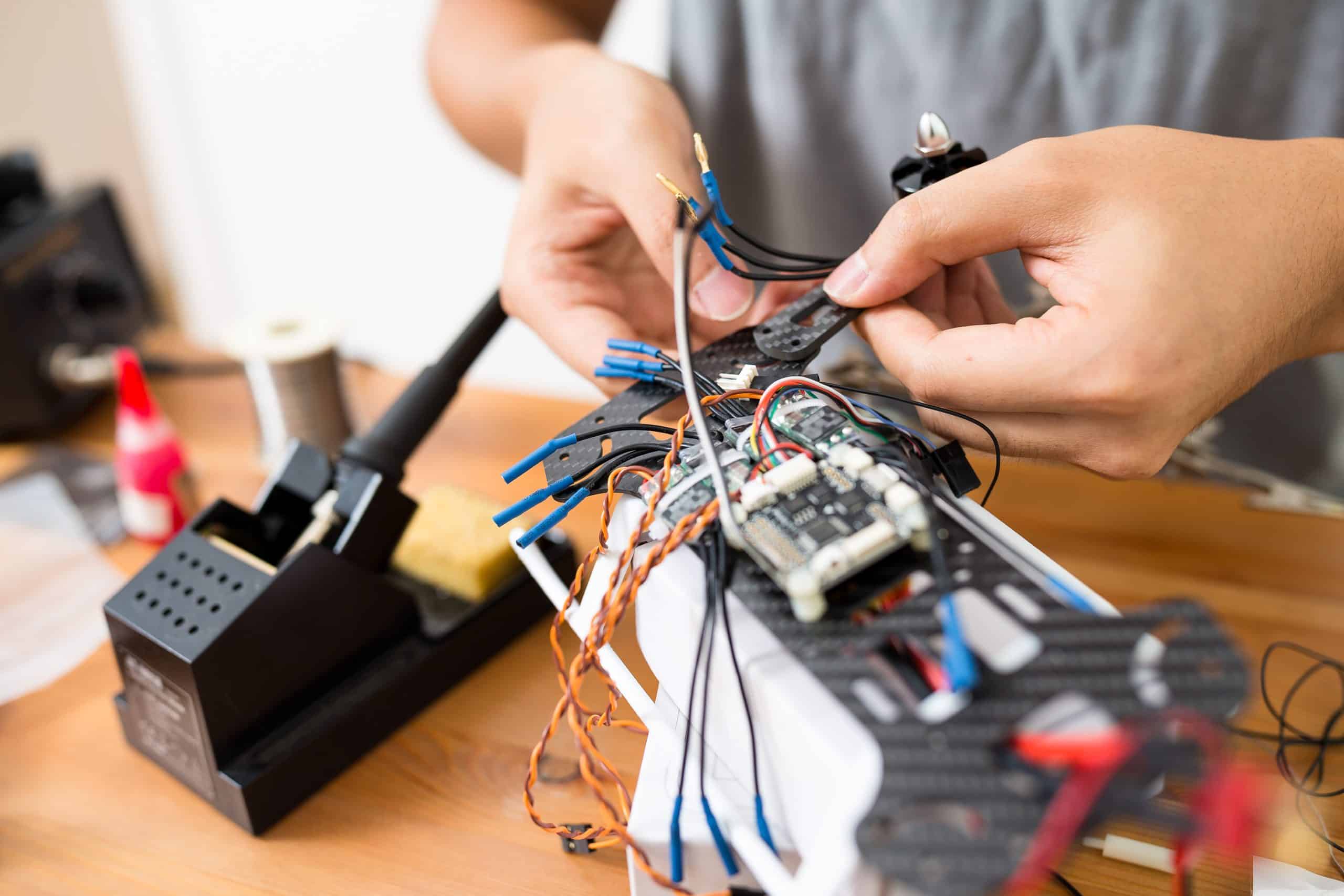In the vast world of construction and real estate, technology plays a pivotal role in ensuring projects run smoothly and efficiently. More specifically, drone technology has revolutionized the way data is collected, time is managed, and construction site safety is maintained. This advancement in technology provides real estate developers with an innovative and effective tool for both site surveying and project monitoring.
Leveraging Drone Technology in Site Surveying
The utilization of drones for site surveying in the real estate industry has been a game-changer. Before the advent of drone technology, the task of surveying a site was labor-intensive, time-consuming, and often fraught with inaccuracies. The introduction of drones has dramatically altered this landscape.
Also to see : What are the ethical considerations in leveraging AI for predictive analytics in real estate investments?
A drone, equipped with high-resolution cameras and advanced sensors, can capture detailed and accurate aerial images of a property. The bird’s-eye view that a drone provides is not only visually appealing but also critical in offering a comprehensive overview of the site. The images taken by the drone are processed through specialized software to create high-resolution site maps, 3D models, and volumetric measurements.
In addition to the accuracy of data, drones also substantially reduce the time taken to survey a site. Traditional survey methods might take days or even weeks, depending on the size of the property. Drones, on the other hand, can complete the same task in a fraction of the time, thereby accelerating the overall timeline of the project.
Also to see : What are the strategies for integrating multi-sensory design elements in real estate to enhance user experience?
Safety Enhancements with Drone Use
Safety is a significant concern in the construction industry. Drones have proven themselves to be a valuable tool in improving safety measures on site. In contrast to human surveyors, drones can easily access difficult and potentially dangerous areas without risk of injury. They can inspect high-rise structures or survey hazardous sites, providing real-time data to the safety team.
In the case of an unexpected incident or accident, drones can also be employed for immediate surveying of the area. This feature provides a quick and real-time overview of the situation, allowing for swift action and potentially preventing further damage or injury.
Furthermore, routine drone inspections can help identify potential safety hazards before they become actual problems. Regular aerial inspections can reveal structural weaknesses, equipment malfunctions or improper storage of materials, thereby pre-empting accidents.
Enhancing Project Monitoring with Drones
Project monitoring is a vital aspect of any real estate development project. Drones provide a more efficient and effective means of monitoring, offering a host of benefits.
With drones, developers can keep a constant eye on the progress of their projects. Through regular drone flights, they can track construction progress, monitor worker productivity, and identify any project bottlenecks. This real-time data can be invaluable in making informed decisions and ensuring the project stays on track.
In addition, drones provide high-resolution images that can be used for marketing and sales purposes. These images can showcase the development from various angles, giving potential buyers a comprehensive view of the property.
Drone Technology: A Boon for the Real Estate Industry
Drone technology has indeed ushered in a new era in the real estate and construction industry. The ability to capture accurate, high-resolution aerial images, coupled with the time savings and enhanced safety measures, makes drones an indispensable tool for site surveying and project monitoring.
As this technology continues to evolve, so too will its applications in the industry. Augmented Reality (AR) and Virtual Reality (VR) technologies can further enhance the data gathered by drones, providing immersive and interactive experiences for project stakeholders.
In conclusion, the efficiencies and benefits afforded by drone technology are clear. For real estate developers looking to streamline their processes, improve safety, and ensure their projects run smoothly, the use of drones is not just a smart choice, but an essential one.
Case Study: Real-Time Data Collection With Drones in Commercial Real Estate
The importance of real-time data cannot be understated in the context of commercial real estate. Real-time data collected by drones can offer invaluable insights into different aspects of a construction project, thereby aiding in effective decision making.
Drone technology enables real estate developers to monitor their construction projects in real time, thereby providing them with up-to-date information that can guide their strategic decisions. For example, drones equipped with advanced sensors can monitor the volume of materials used on a site, thereby helping to prevent material wastage or shortages. Similarly, drones can be used to track working hours and productivity levels of construction workers, which can be crucial for managing project timelines and labor costs.
A case in point is the ‘Skyscraper City’ project in Dubai, which used drone technology for efficient site surveying and project monitoring. Drones equipped with high-resolution cameras and advanced sensors conducted daily site surveys, providing the project management team with accurate and timely data. The team used this drone data to make informed decisions about resource allocation, work scheduling, and safety measures. This resulted in significant time savings, cost reductions, and a substantial improvement in site safety. Thus, the use of drone technology greatly streamlined the project’s operations and boosted its overall efficiency.
Implementing Drone Technology: Recommendations and Future Prospects
Based on their demonstrated efficiency and effectiveness in the real estate and construction industry, we highly recommend the use of drones in these sectors. Real estate developers who are still pondering over whether to invest in drone technology should consider the numerous benefits it offers, including accurate site surveying, real-time project monitoring, and enhanced safety measures.
As for the future prospects of drone technology in the construction industry, they certainly look promising. With continued technological advancements, we can expect to see more sophisticated construction drones in the future. For instance, drones might soon be equipped with advanced AI capabilities that enable them to perform autonomous site surveys and inspections, thereby further reducing human intervention and associated risks.
Looking further ahead, drone technology might be integrated with other emerging technologies such as AR and VR, thereby offering more immersive and interactive construction site experiences. For example, a drone survey might be used to create a virtual reality model of a construction site, enabling stakeholders to ‘walk through’ the site remotely and inspect it from various angles. This could revolutionize the way construction sites are viewed and inspected, making the process even more efficient and engaging.
In conclusion, drone technology has already proven its worth in the real estate and construction industry, and its potential applications are only set to increase in the future. Real estate developers, therefore, would do well to embrace this technology and leverage it for efficient site surveying and project monitoring.
















